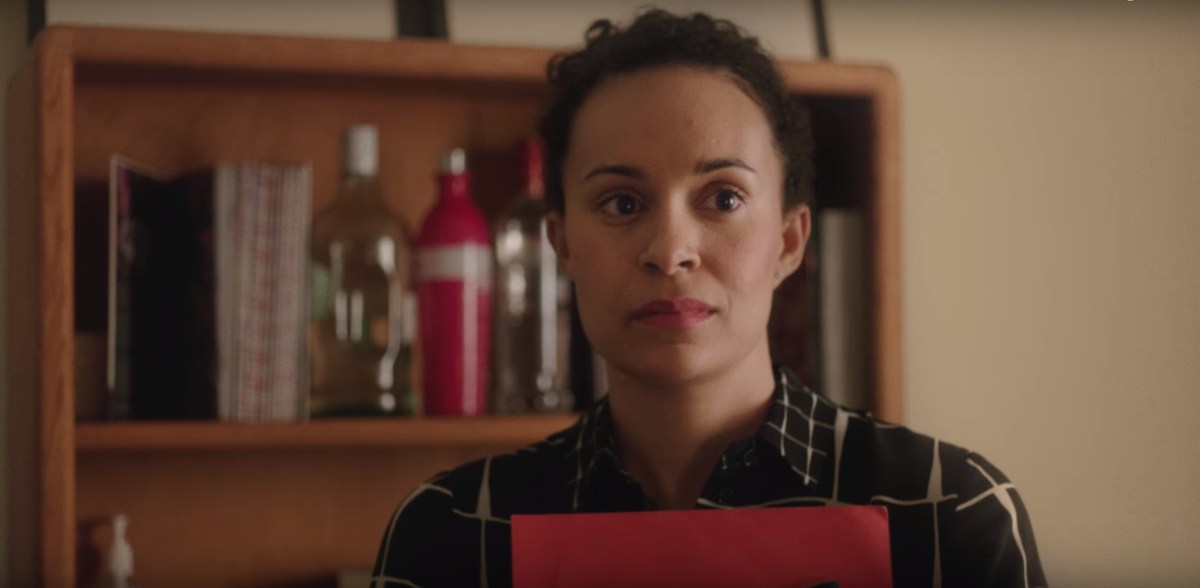While there’s been a focus on the higher-profile cases of harassment and assault being experienced by figures in the public eye, the #MeToo Movement, as well as the #TimesUp initiative, have always been about the instances of harassment, assault, and rape that women experience in all industries, among all demographics, and at all socioeconomic levels. This poignant PSA exists to capture that.
Directed by ten female directors, each one helming one of the vignettes presented in the short, the goal of this #MeToo PSA is, as reported by The Huffington Post, to “is to reach out to women who are survivors of the experiences portrayed onscreen and let them know they are not alone.”
Those experiences include a young girl being inappropriately “favored” by a male teacher, a housekeeper being assaulted by her boss, a breastfeeding woman being ogled by a passerby, a woman in an office being pointedly approached by a male colleague, a female soldier being slapped on the ass by a male soldier, a woman being catcalled as she walks down the street by a man in a car, two queer women kissing in a park only to be ogled and harassed by a group of passing men, a teen girl walking in on a couple (who I assume are her parents?) where the woman is clearly trying to push the guy making advances away, a woman being harassed and followed after leaving an elevator, and a young couple leaving an event only to have the guy forcibly press the girl up against a car.
We watch as each vignette escalates, edited together in a cacophony of injustice, leading up to the now-familiar hashtag: #MeToo.
Summera Howell, actress (she’s the female soldier), director, and producer on the project, explains that “As more women came forward to share their stories, I felt compelled to create a safe space for artists (including myself) to work through their trauma and to reach out to other survivors. #MeToo has given women a space to use their voices, and we’re privileged to put images to those words.”
Fellow director Rachel Fleischer speaks to the diversity of women and situations represented, saying “The ways in which we as women are affected by these experiences are profound, layered and complex; they can only be fully revealed over time. Making work like this is part of uncovering those layers in the hopes that we can not only heal, but bring about real change.”
While it would be impossible to capture every single, nuanced permutation of what harassment, assault, and rape can look like, this PSA does a good job of highlighting that there is a diversity at all, and that they all feed each other, and they’re all a manifestation of the same problem: sexism. The idea that women are disposable, interchangeable sex objects that simply exist to be “of use” to men.
I’m glad that the PSA depicts women and girls of all ages, races, ethnicities, religions, socioeconomic backgrounds, and walks of life. I’m also glad to see examples ranging from the times when an initially harmless encounter suddenly takes a shift toward the inappropriate, to the times that are more blatantly abusive.
I was particularly struck by the moment between the girl and her teacher. At first, a hand on the shoulder doesn’t seem like a big deal. A pat of approval. One that any kid might appreciate for a job well done. And you see it on the girl’s face. She smiles at first, like “Thanks!”
But as the teacher’s hand lingers, and we see his thumb start caressing her shoulder, her face changes along with the energy in the room. Suddenly this seemingly harmless touch has become something else, and a person she may have initially trusted becomes someone who is making her uncomfortable.
Women experience moments like this all the time. Seemingly harmless encounters that suddenly take a turn. You never really know what to expect, and so you’re conditioned to be on your guard. Which then causes additional harassment as men wonder why you’re not smiling. Or why you’re not responding to their catcalls. Or why you get so defensive when someone brings up the fact that men are going to have trouble flirting now in the age of #MeToo and #TimesUp.
Hopefully, this PSA will spread and let women see themselves in it in a way that is only possible in a filmed project. Hopefully, it will inspire women to tell more of their stories, to feel more empowered to call certain behaviors that they’ve gotten used to out for what they are: harassment, assault, etc.
And hopefully, projects like this PSA will inspire not only conversation, but concrete action toward change from people of all genders, particularly men, so that PSAs like this aren’t ever needed again.
(featured image: screencap)
Want more stories like this? Become a subscriber and support the site!
—The Mary Sue has a strict comment policy that forbids, but is not limited to, personal insults toward anyone, hate speech, and trolling.—








Published: Jan 18, 2018 12:47 pm